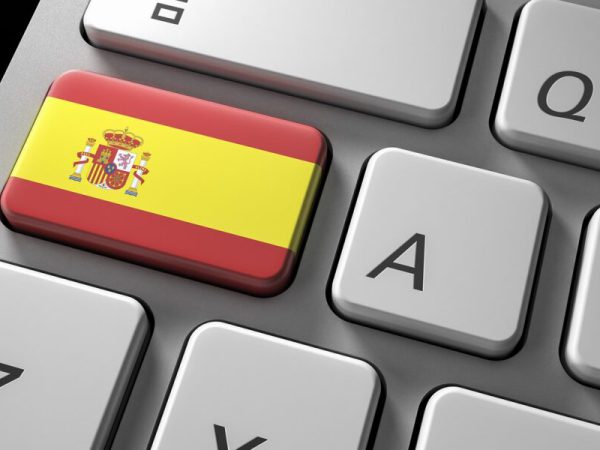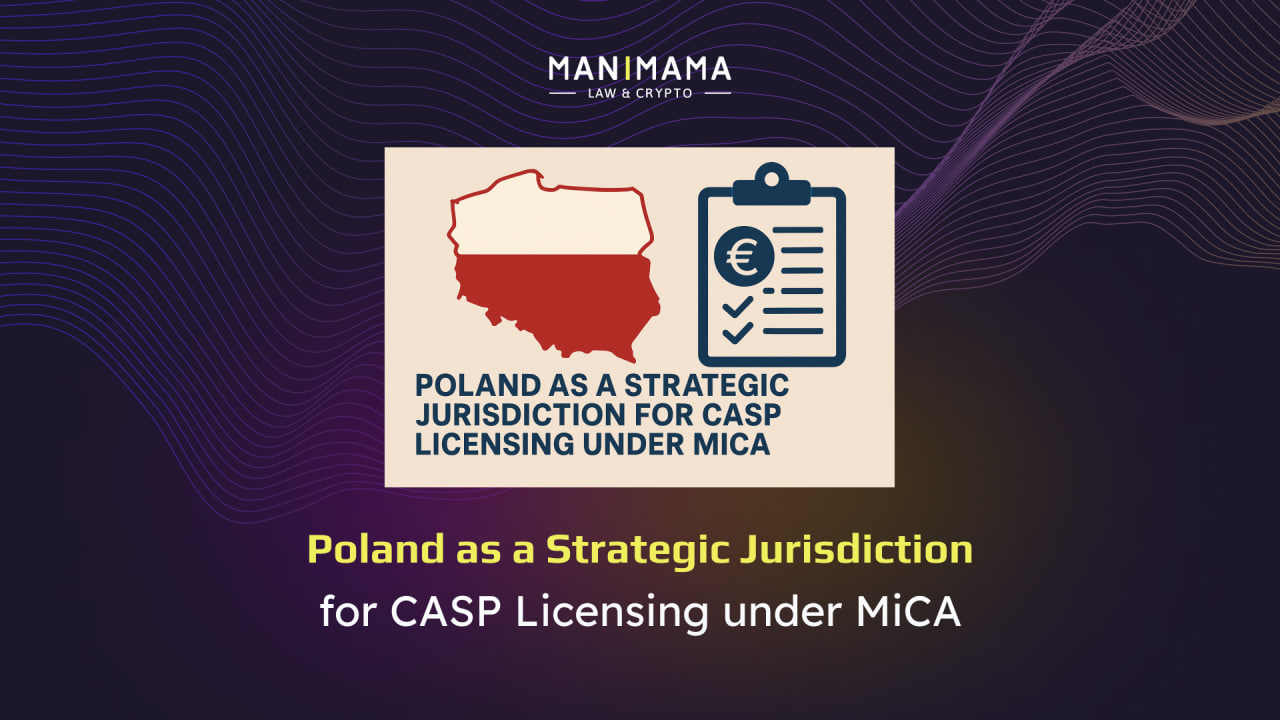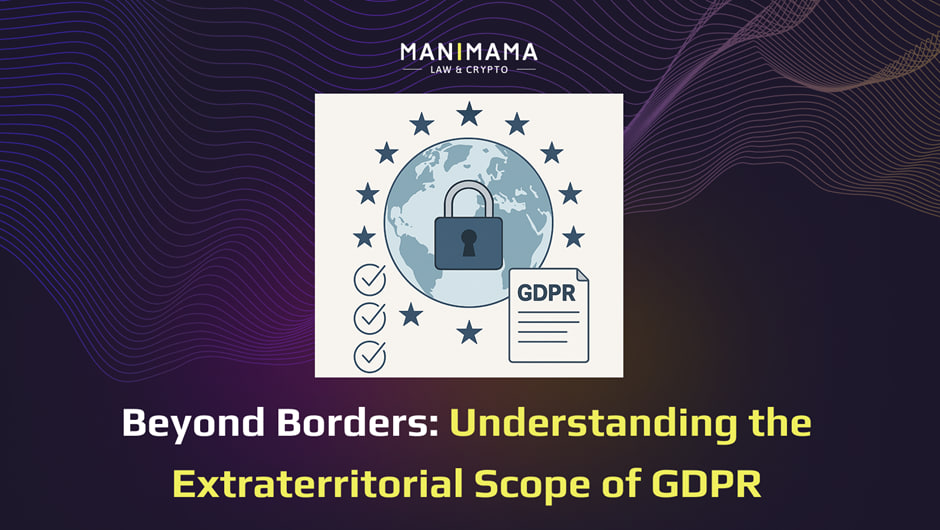The Kingdom of Spain has chosen quite a cautious and conservative approach with regard to virtual currencies, with the aim to protect the rights of investors and consumers in the financial market.
Updates on regulation of crypto actives in Spain
December / 21 / 2021
|
15 m. to read


Cryptocurrencies are per se not securities, neither are they legal tender in Spain. Whereas recent regulatory amendments have required all virtual currency service providers to obtain a registration status to legitimately carry out their business activities in Spain. The article will discuss up to date regulatory measures and taxation regimes which directly affects the virtual assets economy.
Definitions
In July 2021, Stock market regulator of Spain (Comisión Nacional del Mercado de Valores; Hereinafter: “CNMV”) released a public consultation to respond to advertising of Cryptoassets’. Although this proposal is not legally binding, it enlightens the government’s potential oversight on regulation of the crypto-assets advertising. The document provides a normative definition of the crypto asset which is a “digital representation of an asset or right that can be electronically transferred or stored by using distributed ledger technologies or other similar ones”.
Although, the cryptocurrency is not considered to be legal tender in the country, as pursuant to Law 46/1998 of 17 December, euro shall be the sole unit of account in legal instruments and have the status of legal tender in the kingdom of Spain.
Initiating mandatory registration
Spanish parliament has recently adopted a Royal Decree-Law 7/2021 of 27 April, which amended earlier Law 10/2010 on the prevention of money laundering and terrorist financing (hereinafter:- “AML Law”) to apply EU’s 5th Anti Money-Laundering Directive in its jurisdiction. The amended law brought some important changes on the regulation of operators engaged in virtual currency exchange and provision of e-wallet custody services. The law has mandated these operators to comply with AML law and be subject to the supervision by the Commission for the Prevention of Money Laundering (hereinafter:- “SEPBLAC”).
Physical and legal entities despite their citizenship status, place of incorporation and management who offer virtual exchange service and provide e-wallet custody service must register in a special registry by the Bank of Spain starting from October 2021. The following mandatory documents are needed to apply for a registration:
- registration form for currency exchange service provider/e-wallet custody service provider;
- document accrediting registration as a self-employed worker if applied as a physical person;
- form for evaluating the suitability for providers of virtual currency exchange services for virtual currency exchange and custody of electronic wallet;
- criminal record certificate which has the issuance date no older than 3 months from the date of application;
- identification document;
- manual for the prevention of money laundering and terrorist financing;
- risk analysis document.
Upon the registration application has been filed, the Bank of Spain has a period of 3 months to process and to issue the decision, although the processing timeframe can be prolonged should the Bank require additional documentation from the applicant.
In case the virtual asset service operators conduct such activities (even though the service is carried out once or on an isolated basis) without registration, they will be found guilty and subject to fines up to EUR 10 million. All existing operators in Spain are obliged to be registered before January 29, 2022, while all those who are planning to provide aforementioned services in Spain must register before commencing their activities. Establishment of such a regime for virtual asset service operators is believed to be a driving force to regulate providers of emerging businesses of financial service as they have the same legal obligation and status applicable to credit institutions.
Taxation of transactions with virtual currencies
Although the tax regime and reporting obligations in relation to virtual currencies are at an early stage, the Spanish tax agency has also issued binding rules concerning taxation of undertakings with virtual currencies.
- Income tax and VAT
Contingent upon their use, virtual assets are considered to be an intangible asset or a commercial stock from the accounting perspective. Thus far, Spanish tax authorities have considered transactions with virtual currencies(excluding mining) to be barter transactions for income purposes (personal income tax, corporate income tax and non-resident income tax), meaning that virtual currency users make capital gains or losses with application of virtual currencies. Ruling V0808-18 of 22 March, 2018 specified that use of virtual currencies outside of the performance of an economic activity will give rise to capital gains or losses, for the time being when the transaction takes place in accordance with article 14.1(c) of Personal income tax law 35/2006 of 28 November 2006, with up to 23% tax rate applied to individuals. Moreover, pursuant to binding taxation ruling V1604-18 of 11 June, 2018, fees are charged by the exchange of cryptocurrencies gained from exchange transactions resulting from increase, decrease of the acquisition and sale price directly related to transactions.
Moreover, the income derived from Mining of virtual assets is treated as a business income. 25% of income tax rate applies to corporate entities, while non-resident income tax rate is 24%, the tax rate will be 19% in case when the taxpayers reside in any other EU or EEA member state.
The Spanish tax authority exempted appliance of VAT on virtual assets (binding tax rulings V1274-30 of 6 May and V1748-18 of 18 June) the approach is harmonised with the EU court of Justice decision in the case Skatteverket v David Hedqvist, which ruled that VAT does not apply to purchase and sale of bitcoins.
- Net wealth tax and reporting obligations
Deemed to be an asset, digital currencies fall within the ambit of Net Wealth Tax law 19/1991, (hereinafter:- “NWT law”) this must be declared before the Spanish tax agency. As per article 24 of the NWT law, taxpayers must report their virtual assets, indicating their market value on December 31. Tax officials upheld this decision in binding rulings V0590-18 of 1 March and V2289-18 of 3 August. The net wealth tax rate can be as much as 2.75% depending on the residency of the autonomous region, some regions charge 0% tax rate.
- Declaring obligations
Besides net wealth taxation, taxpayers have obligations to declare all assets held abroad worth more than EUR 50,000 including bank accounts, securities, and real estate possessed. In line with Law 11/2021 on measures to prevent and fight tax evasion, taxpayers must now report the amount of virtual currencies held in Spain or abroad by submitting form 720 by March 31 of each year, identifying the owner and the beneficial owner and indicating all transactions involving virtual currencies (acquisitions, sales, barter transactions or transfers).
Concluding remarks
Under the new regime, crypto-to-fiat exchanges, crypto exchanges, and e-wallet providers have become regulated businesses, subject to mandatory registration. along with taxation and reporting requirements, it can be seen that Spain has chosen to record and keep an eye on every operation carried out with virtual currencies, from the sale to its custody and storage. Commercial banks in Spain, who are already big players in the supervised industry, have also shown an intent to offer crypto services to their customers, thus should duly adapt their AML policies and file registration accordingly. Albeit, outgrowths of the legislative developments remain to be seen in the near future, as proposed EU regulation of crypto-assets to be introduced in the future might also change the course of events in the crypto-assets market.
The content of this article is intended to provide a general guide to the subject matter, not be considered as a legal consultation.
Other news

Poland as a Strategic Jurisdiction for CASP Licensing under MiCA
April / 23 / 2025
|
15 m. to read
Go To New



Cross-Border Data Transfers Under the GDPR: How to Stay Compliant When Working with International Partners
April / 22 / 2025
|
15 m. to read
Go To New



Сompany registration in the Ghana: Legal aspects and advice
April / 18 / 2025
|
15 m. to read
Go To New



Сompany registration in the Gambia: Legal aspects and advice
April / 18 / 2025
|
15 m. to read
Go To New



Beyond Borders: Understanding the Extraterritorial Scope of GDPR
April / 17 / 2025
|
15 m. to read
Go To New





Ready to start working with us? Fill out the form.
Share your vision. We'll create a legal framework tailored to bring it to life
Tokenization
Tokenization
Licensing
Incorporation
MiCA
